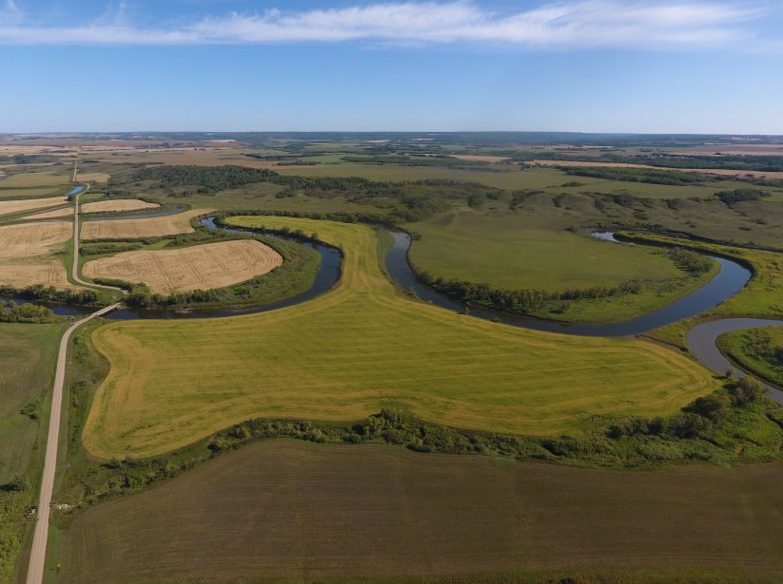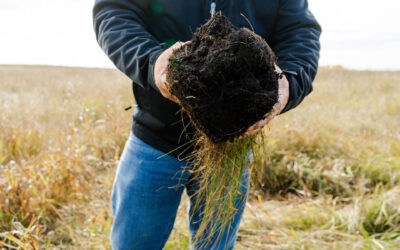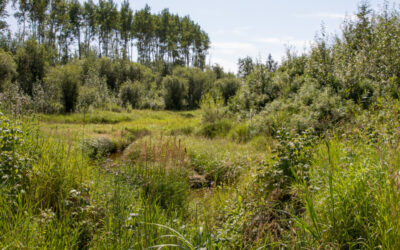MINNEAPOLIS and TORONTO, July 27, 2022 — Today, General Mills and ALUS announced a multi-year partnership to support farmers and accelerate regenerative agriculture in Manitoba and Saskatchewan, Canada – key regions where General Mills sources oats for brands like Cascadian Farm, Cheerios, and Nature Valley.
The U.S. $2.3 million investment enables ALUS to grow its community-led programming with a focus on soil health through its new Growing Roots pilot program, offering both technical and financial assistance to farmers. The partnership aims to remove barriers to entry and maximize benefits for local producers, communities, and the environment.
“We were drawn to ALUS’ grassroots approach with farmers at the center,” said Mary Jane Melendez, chief sustainability and global impact officer, General Mills. “Now, interested farmers in these communities can gain a greater understanding of regenerative agriculture and how best to apply those principles to their farm’s unique environmental, social and financial context, along with the power of peer knowledge-sharing and community support.”
ALUS supports General Mills’ commitments to advance regenerative agriculture on one million acres of farmland by 2030, reduce absolute greenhouse gas emissions – 60 percent of which are from agriculture – across its value chain (scopes 1, 2 and 3) by 30 percent by 2030, and ultimately achieve net zero emissions by 2050.
The investment from General Mills provides robust support to increase farmer mentorship and fund in-field projects that follow regenerative agriculture techniques. Funding also provides enhanced data collection, scientific research, and the sharing of this critical information with key stakeholders.
“ALUS has been interested in developing a comprehensive on-field program focused on soil health for years and we’re delighted that General Mills, a leader in this area, has become our foundational partner,” said Bryan Gilvesy, CEO, ALUS. “We believe the creation of this program is a catalyst for engagement from other corporate, government and philanthropic partners interested in ALUS programming and its outcomes and impact across Canada.”
Farmers, companies, and others who may be interested in growing the regenerative agriculture farmer-led movement in Manitoba and Saskatchewan can reach out to Nicole Baldwin, the program manager, at [email protected] to learn more.

The Assiniboine river from the sky.
G Stands for Good
General Mills stands for good – for the people we serve, the brands you love and the planet we depend on. For more than 150 years, General Mills has believed doing good and good business go hand-in-hand. The company is putting people first by improving food security and advancing a culture of inclusion, equity and belonging, and by creating positive planet outcomes through actions beyond its walls. Learn more at GeneralMills/gstandsforgood.
About General Mills
General Mills makes food the world loves. The company is guided by its Accelerate strategy to drive shareholder value by boldly building its brands, relentlessly innovating, unleashing its scale and standing for good. Its portfolio of beloved brands includes household names such as Cheerios, Nature Valley, Blue Buffalo, Häagen-Dazs, Old El Paso, Pillsbury, Betty Crocker, Yoplait, Annie’s, Wanchai Ferry, Yoki and more. Headquartered in Minneapolis, Minnesota, USA, General Mills generated fiscal 2022 net sales of U.S. $19.0 billion. In addition, the company’s share of non-consolidated joint venture net sales totaled U.S. $1.1 billion.
About ALUS
ALUS is a national charitable organization that provides expertise, resources, and direct financial support to 35 communities across 6 provinces where more than 1,400 farmers and ranchers establish and steward nature-based solutions on their land. Through these solutions, they deliver ecosystem services to help sustain agriculture and fight climate change and biodiversity loss for the benefit of communities and future generations. Projects such as enhanced wetlands, windbreaks, riparian buffer zones, wildlife habitats, adaptive agricultural practices and other impactful environmental solutions produce cleaner air, cleaner water, greater biodiversity, carbon sequestration, erosion control, flood and drought mitigation, pollinator and wildlife habitat, and other ecological services. Learn more at ALUS.ca.



